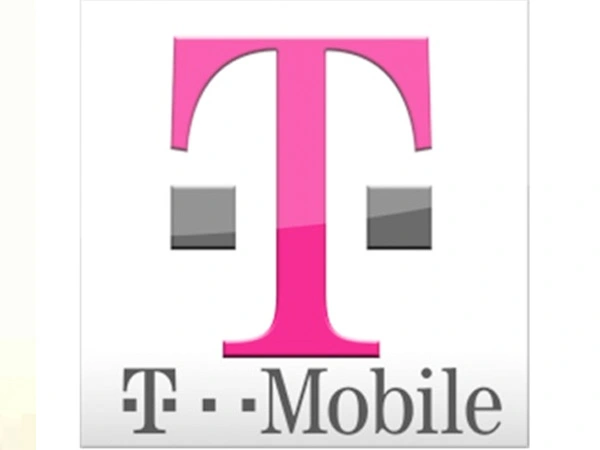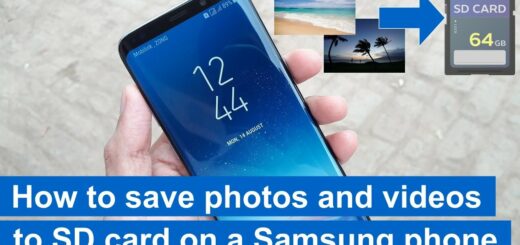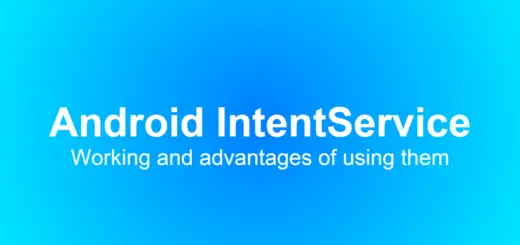Know the Wireless Contract of your Service Provider
Not all wireless services are created equal. While most customers assume that all wireless contracts are the same, they are not. Interestingly, the two most similar wireless contracts offered by T-Mobile and Verizon only share 10% of their details. A wireless contract is a binding contract between a service provider and the customer that outlines what the customer is purchasing, what they will be charged, and what happens at the end of their contract.
Wireless companies want to lock their customers into their service for as long as possible, so these contracts often include a continuation fee. Other wireless contracts are even worse, including those that lock you into a multi-year service contract, a multiyear cellular plan, or a pay-per-text plan.
When shopping for a wireless phone plan, your service provider should be your first stop. Call the provider directly and ask which plans they offer. Then, compare those plans to your current plan. Also, don’t be afraid to ask if the package is locked in—the longer your contract is, the more time you have to save.
Are you currently experiencing issues with your service provider? Perhaps you’ve moved from one city to another and run into issues with your current provider. Whatever the reason, it’s important to know the intricacies of your wireless contract in order to see if you can get any changes made. However, wireless contracts are lengthy documents, and it can be difficult to know what you’re agreeing to.
A wireless contract, also known as a service agreement or the case of Verizon and Sprint, a retail agreement, is the legal agreement between a wireless service provider and a customer. This contract can include the benefits provided to the customer and the commitment between the two parties regarding services and payments made. When your wireless contract is over, you can renew the agreement or sign a new one with another service provider.
As technology becomes more accessible, so too does the potential for your home to be invaded by burglars. This includes wireless networks. While wireless technologies can provide convenience, they also leave your home or business susceptible to a potential breach.
For the latest tips and tricks or to fix any issue with your android smartphone, click here.
Sprints Wireless Customer Agreement

Sprint Wireless has set up an account for you on the Sprint Network. By signing this acknowledgement, you agree to Sprint’s terms and conditions of use. Sprint reserves the right to change its terms and conditions at any time. Your use of the Sprint wireless network constitutes your acceptance of these terms and conditions. Read the terms and conditions carefully.
Sprint Wireless is a division of Sprint Nextel Corporation. And Sprint Wireless is not the same company as Sprint Corporation, which is a telecommunications company that provides wireless voice, data and text messaging services. Sprint Wireless is a wireless telecommunications company that operates on the Sprint Nationwide Network.
And Sprint Wireless Customer Agreement Sprint provides wireless products and services to an estimated 69 million subscribers as of September 30, 2018. Sprint and its subsidiaries and affiliates (collectively, the “Company”) are headquartered in Overland Park, Kansas.
The Company offers a comprehensive range of wireless and wireline communications services bringing the freedom of mobility to consumers, businesses and government users. Sprint is a wholly-owned subsidiary of SoftBank Group Corp. (“SoftBank”), diversified telecommunications, technology, and internet company.
T-Mobile’s Wireless Customer Agreement

The T-Mobile Wireless Customer Agreement is the official contract that you sign when you sign up for the T-Mobile service. The terms aren’t set in stone, but charges are based on your telecom usage.
You pay $21 per month for unlimited talk, text and data, plus taxes. Beyond that, you can add $20 per line per month, plus taxes, for services like DirecTV Now, Hulu and Spotify. You can also pay $10 per line per month, plus taxes, for unlimited international calling and texting.
The Wireless Customer Agreement (WCA) is the contract between you and T-Mobile, outlining the rights and responsibilities of both parties. It also contains important information on the wireless services that T-Mobile offers and the taxes and fees associated with these services.
The WCA is split into 16 sections, including General Information, Prohibited Use, Terms and Conditions, Service Plan, Device, Additional Charges, International Services, Network, Dispute Resolution, Arbitration, Waiver, Governing Law, and Miscellaneous.
All T-Mobile wireless customers are required to sign the company’s Wireless Customer Agreement when they sign up for a service plan. While you’ll still receive all of the same perks and benefits as other customers, you’ll be expected to also sign this agreement. The Wireless Customer Agreement covers the services you’ll receive, any fees associated with those services, and anything else you need to know.
AT&T’s Wireless Customer Agreement

The latest AT&T Wireless Customer Agreement is now available online. This contract is a legal agreement between you (the customer) and AT&T Wireless (“AT&T”) outlining your rights and responsibilities. It details your rights and duties as a customer of AT&T Wireless, as well as terms regarding equipment, coverage, pricing, and service. Please take the time to read this document carefully.
When AT&T launched its FirstNet public safety network back in 2016, it promised that each of its customers would receive a booklet outlining the terms and conditions under which they would use FirstNet. That booklet, which AT&T calls its Wireless Customer Agreement (WCA), details how AT&T uses your protected health information (PHI), how it shares your information with third parties, and your legal rights regarding that information.
AT&T is the world’s largest telecommunications company, and their 30-page Wireless Customer Agreement is confusing! But, you can simplify it by reading through the document. The Wireless Customer Agreement (WCA) sets the rules AT&T uses to govern wireless customers. Every AT&T wireless customer, including those who subscribe to their GoPhone or AT&T Prepaid plans, must read the Agreement since all AT&T wireless customers are bound by its terms.
AT&T’s Wireless Customer Agreement (CWA) is the industry standard contract it uses with all of its phone customers. This CWA provides specific details on how you can use your wireless service and ensures you that your wireless experience will meet your expectations. The CWA includes basic information about AT&T, its products and services, and what you can expect from AT&T and its network.
Verizon’s Wireless Customer Agreement

If you’re looking for wireless service, you’re in luck. Verizon has one of the best offers around with an unlimited data plan, starting at $50 per month for the first line. But before signing on the dotted line, make sure you read the fine print, including Verizon’s Wireless Customer Agreement.
If you want to own a Verizon mobile phone, you’ll need to sign its wireless customer agreement. And before you do that, you should understand what you’re signing up for.
When signing up for a new cell phone plan, most people simply enter their name, address, and phone number, and pick a handset. Sometimes, though, consumers might be asked to agree to a certain policy or terms of service before they are allowed to sign up.
In March 2017, Verizon updated their Wireless Customer Agreement (WCA) and accompanying Terms and Conditions (Terms of Service, or TOS). Under the updated agreement, Verizon now collects and shares customer information with the DEA.
There’s an old saying that goes: “You break it, you bought it.” Verizon takes that to heart, which is why they’ve created their Wireless Customer Agreement, which outlines your rights to use their devices, and what they can do with your devices and personal information. To read the full agreement, visit their Legal Page.
Things to consider when you purchase any wireless service provider

Buying a wireless service provider is a decision many people put off until they’re forced to do it due to their current provider’s low service, poor coverage, or customer service issues. However, wireless carriers aren’t all the same.
They vary in what they offer, at what price, and in what they support. So, before you jump ship, make sure you consider every option. Here are 5 things you should know about wireless service providers before you sign.
With the recent increase in wireless service providers, it can be difficult to decide which company is best for you. But there are a few considerations that might help you make up your mind.
When you buy a new wireless service provider, there are a number of things you should find out from the company you are about to join. These may include: how much data is included per month, how much extra data costs, how much data download is available per month, the speed and reliability of the service, how much extra data costs, and the cost of any overage charges.
You should consider
- Know your needs
- Consider price
- Research alternatives
- Think about your habits
- Consider your usage
- Consider your area
- And consider your value
- Consider your contract
- Service Plans
- Roaming
- Family Plans
- Customer Service
Buyer’s remorse and return policies when you purchase any wireless service provider
When you make a larger purchase, like a smartphone, there are many things to consider, including price, features, and warranty, but you’ll also want to think about return policies. You’ll want to be certain you can return the phone if it didn’t work out or if you need a refund. Whatever your choice, it’s important to know the ins and outs of your purchase and the retailer’s return policy.
A way out of your wireless contract when you purchase any wireless service provider
Technology moves fast, and with it, so do our cellphones. For most of us, buying a new smartphone is as much a social decision as it is a product purchase. But do you know that if you buy a smartphone directly from a carrier, you may have no choice but to sign up for a long-term contract?
Before you commit yourself to a 24-month contract that you might not be able to break, check the Wireless Freedom Act, which states that you have the right not to sign up with a wireless contract when you purchase a new wireless service provider.
Consider Early Termination Fees when you purchase any wireless service provider

Did you know that when you purchase a phone plan from a service provider, you are purchasing the “Contract”? This means that you agree to pay the carrier for a certain amount of service for a prescribed amount of time. Once your initial contract ends, you are free to cancel your service, however, if you value your service, you may simply choose to pay the early termination fee.
Wireless services are usually pretty expensive, especially if you want to include unlimited data. However, there are some service providers that offer special packages with cheaper and cheaper prices, including termination fees.
When considering one of these providers, be sure to read the fine print carefully. Some service providers may only offer cheap plans for a limited time, so if you don’t follow the provider’s instructions, you can end up paying significantly more for the service than you originally expected.
Wireless phone service providers are a dime a dozen. If you are not careful, however, you could end up paying more than you need to. There are three main considerations you should make when selecting a wireless service provider:
- Contract end date
- Contract start dates
- And wireless coverage
The wireless carrier you choose can have a profound impact on whether or not your contract lasts or ends, and your monthly payments. It’s important that you consider the start and end dates when you purchase any wireless service provider.
Consider Automatic Renewals when you purchase any wireless service provider
In the wireless world, customer service is the name of the game. And while most providers advertise “24/7” service, the reality is that you aren’t always guaranteed an answer from a real person. And if you’re struggling with an issue, it can take hours, days, or even longer when calling in.
So, make sure you consider automatic renewals when you purchase a wireless service provider. Most providers offer this option, and it gives you peace of mind—and time—in knowing you won’t be disconnected or overcharged.
Nearly all Americans own at least one cell phone—and if you own a cellphone, you would spend anywhere between $200 and $2,000 a year on the service. Any one of these expenses can add up, so it’s wise to save some money when you can. When it comes to saving money on wireless service, most people automatically think of bundling—but that’s not the only option to consider.
Consider Payment Terms when you purchase any wireless service provider

Wireless carriers are continually trying to increase their bottom line. They do this by either increasing prices, increasing contract lengths, or both. One way they do this is to add different fees for services they offer. For example, wireless carriers charge for a SIM card and plan activation, and for going over your allotted data limit. Few consumers know this, so they’re shocked when the bill comes—and it’s not under $200.
It’s no secret. Wireless service is expensive. But is it really? It turns out that many people can be paying way too much for their wireless service. Some wireless service providers offer automatically billing you for wireless services that you may not even use.
This can mean hundreds of dollars in overage charges that you don’t even know you’re paying for. Before you agree to any contract for wireless service, make sure you carefully inspect all the terms and conditions, especially if you will be purchasing more than one line of service.
Consider Network coverage and details – such as dropped calls when you purchase any wireless service provider
Wireless carriers are all fighting for your business and for the profits that go along with it. Most carriers offer new subscribers the chance to get phone credit or discounted phone plans in exchange for signing a contract. But before you commit to a contract, make sure you know what you’re getting: network and coverage details, such as dropped calls, are an essential part of choosing a carrier.
Make sure you’re not agreeing to a plan that lacks coverage in your area, and that you’re not agreeing to a contract that leaves you feeling frustrated and unable to get your phones to work properly.
Are you thinking of switching to a new wireless carrier or is your current carrier adding something to your package that you’re interested in or are you getting rid of your current carrier because of poor customer service? Or maybe you’re thinking about switching because you want to make sure your phone gets the widest coverage possible.
Are you moving soon? Are you upgrading to a new phone? You should consider coverage options as well. Wireless carriers generally offer three types of service: “voice,” “data,” and “video.” You’ll need a service plan that offers coverage for each of these services.
Consider Roaming charges when you purchase any wireless service provider

The dream of using a mobile wireless phone is to be able to make a cellular call from anywhere at any time. However, that dream can quickly turn into a nightmare when you find out your provider charges you exorbitant roaming charges.
To make sure your roaming charges are reasonable, consider purchasing a new wireless service provider and choosing a plan that doesn’t charge an arm and a leg for international calls.
In the United States, people pay for wireless service in a variety of ways. Most pay a monthly fee for a set amount of data, while others pay per text or call made. When purchasing a cell phone, some people only pay a one-time fee for the phone, while others pay an installation fee in addition to a monthly service fee.
Regardless of which package you choose, there is one factor you should keep in mind: if you roam outside of your network area (a zip code), you may be charged a fee.
For more additional information, you can also read: Wireless Coverage Maps
Thank You for Reading
When it comes to wireless services, there are few things that matter more than the fine print of your wireless customer agreement. But what exactly does this mean? Well, just know that in this contract, you promise to abide by both the provider’s terms and conditions as well as your own, agreeing not to violate either.
That means that you promise to pay your bills on time, not misuse the phone’s features, to only use the phone for lawful activities, and not to use the phone for illegal or fraudulent purposes. You also agree that coverage maps are subject to change and that your phone won’t work properly on some networks.
If you are facing any trouble with your smartphone you can check the links below which will guide you to the solution:



